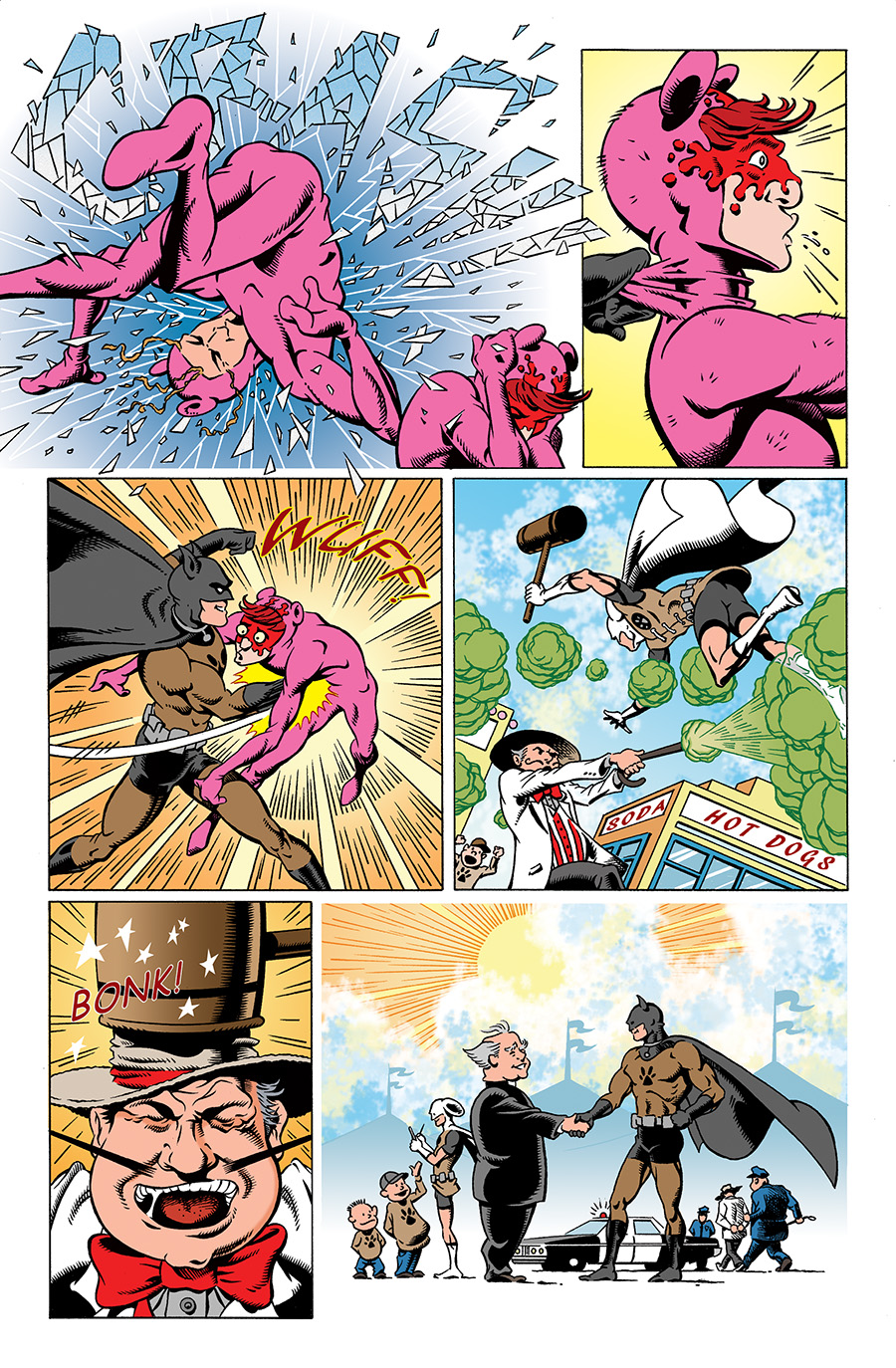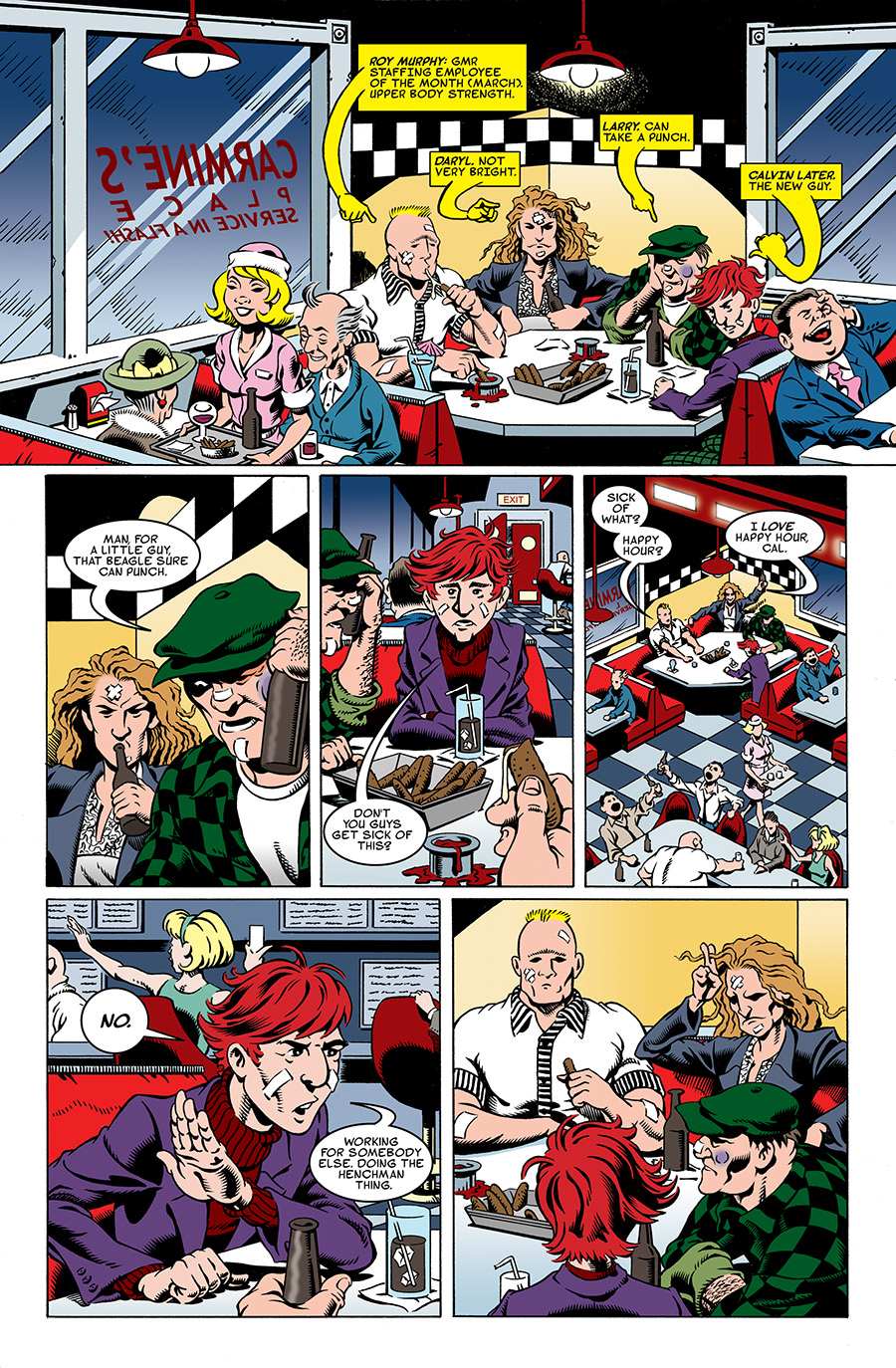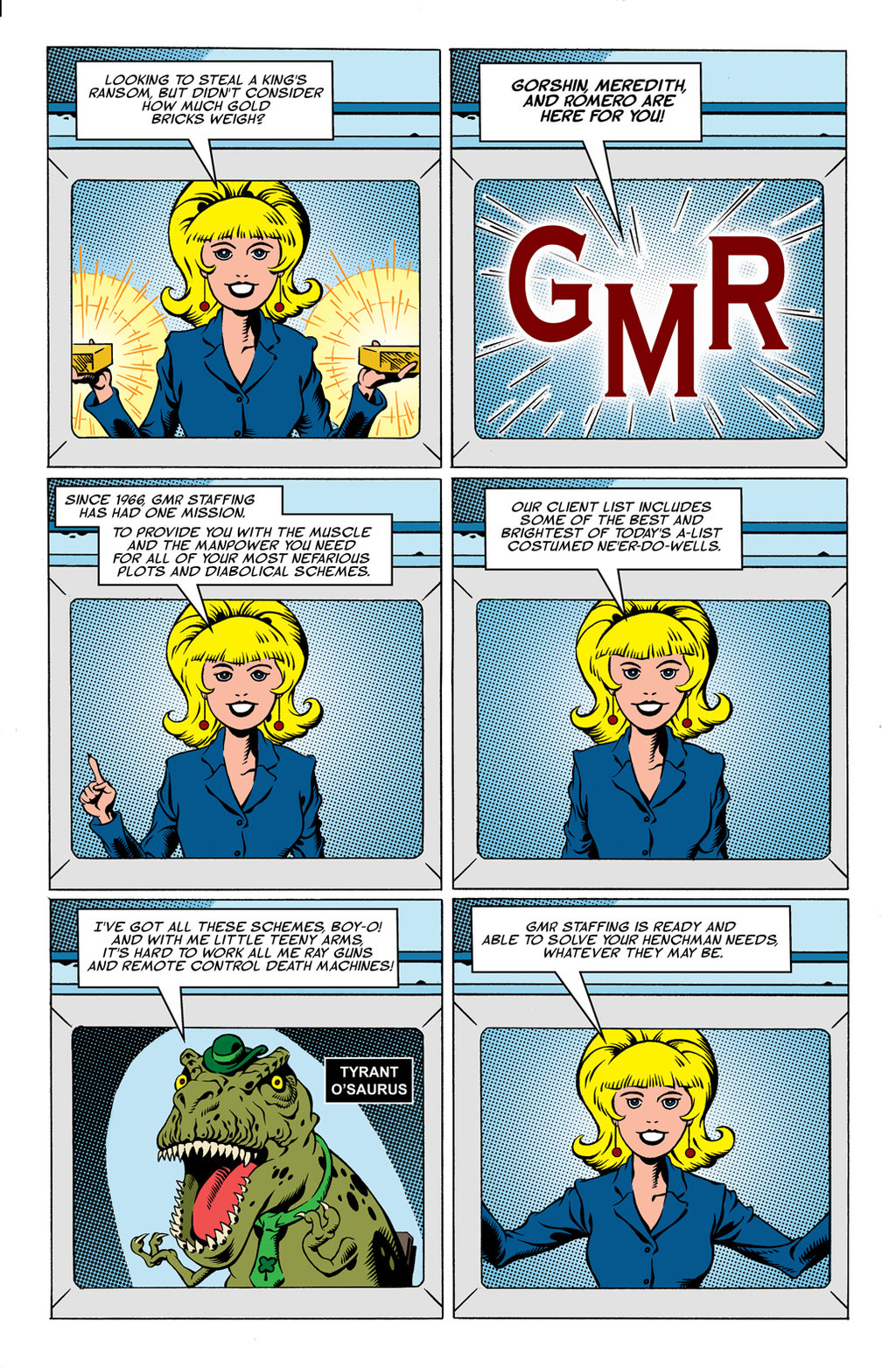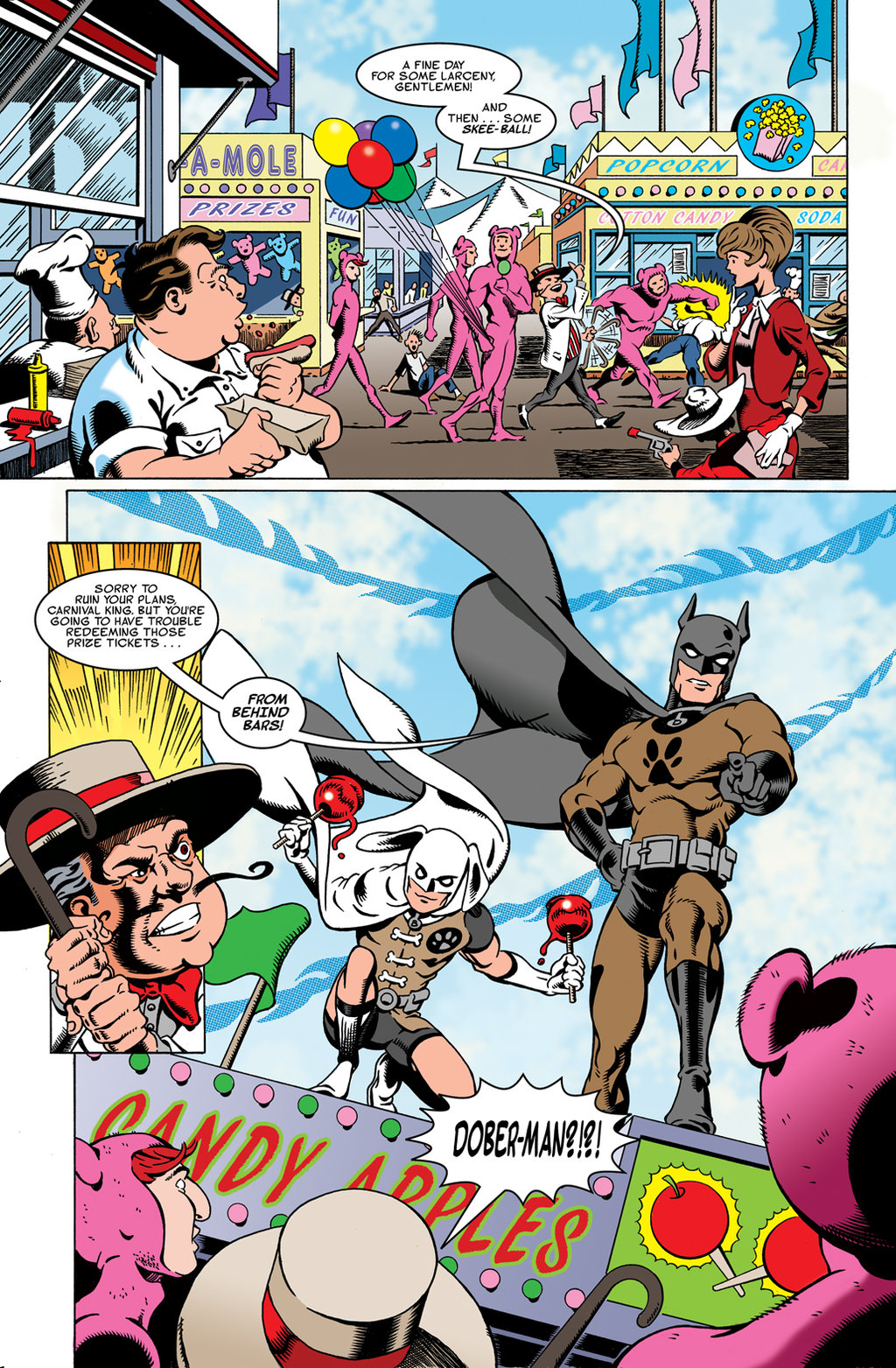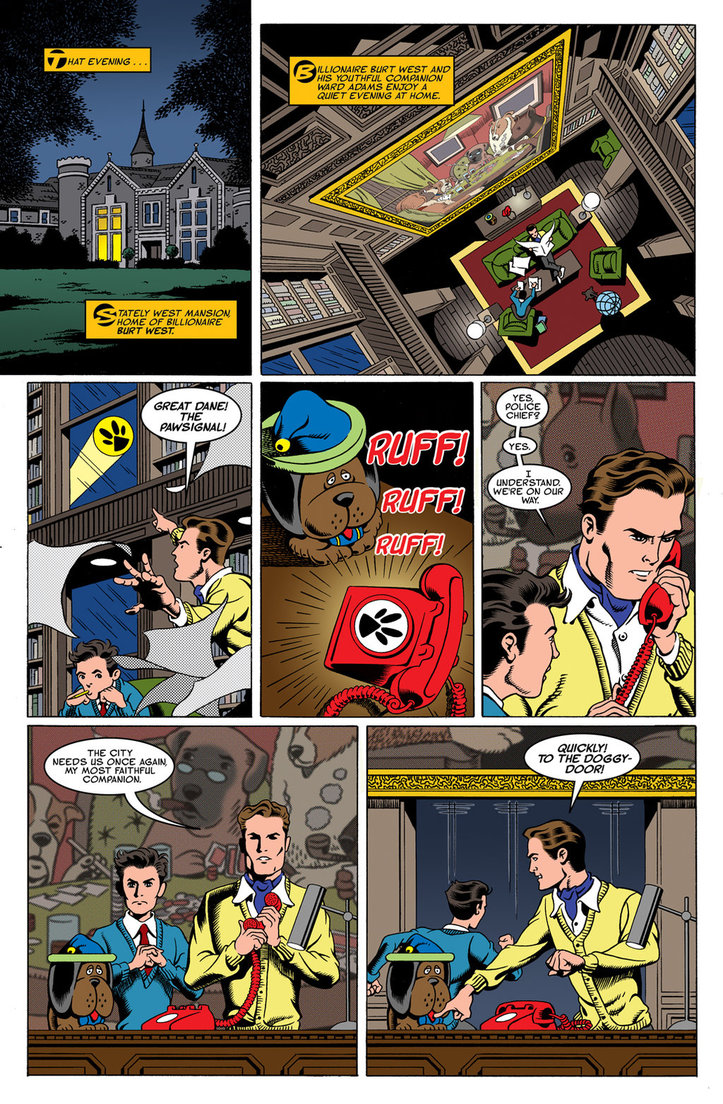As much as I enjoy Say Anything (the band fronted by writer Max Bemis), I was hesitant to pick up this comic because, well, the premise sounds exactly like the pseudo-autobiographical premise of their first album "...Is A Real Boy," which kindofsortamaybe chronicled Bemis's descent into super-powered bi-polar disorder -- except that, while recording said album, Max Bemis was actually diagnosed with bi-polar disorder and locked himself up for a while. But, the book was on sale for $4 on ComiXology, so I figured hey, why not.
While I tend to be the kind of person who connects with comic books more the writing than the art (although I do love a good collaboration), I'd first look to say that the artwork on this book is PHENOMENAL. It's slightly cartoonish, but not a childish way, and accurately portrays hyperviolence, superhero action, internal mindscape struggles, and hipster culture. As for the story itself, it didn't shy away from the fact that it was a slight variation on the story that Bemis has told several times already. The basic premise is that Tim is an artist and self-loathing hipster who suffers from bi-polar disorder, and after he's institutionalized and begins taking pills, he can't create his art. So he goes off his medication, and soon discovers that his untreated condition literally gives him superpowers. But maybe he's too dangerous, and maybe there's a Shadowy Government Organization trying to create an army of Bi-Polar Super Soldiers? Meanwhile, his art is getting better, and he meets a girl.
Overall, it's a pretty enjoyable story, and while applying science fictional concepts to mental illness is nothing new, I actually think that Bemis does it in a pretty fresh way -- by essentially saying that yes, mental illness IS a superpower, but the same way that traditional superheroes suffer from their extra-human abilities, maybe it's still better if you take your pills and try to function like a normal person. That being said, I'm not sure how this book would read to someone who was unfamiliar with "hipster" culture. The main character spends a lot of the book criticizing everyone around him for being hypocrites and poseurs, and ultimately realizes that he's just the same as the rest of them. If you're familiar with Say Anything's music, Tim's rants are all basically pulled straight out of the song "Admit it!" As far as cultural critique is concerned, it is an interesting analysis of hipsterdom that I mostly agree with, even if it is a bit misanthropic (which works well in a loud rock song, but feels different as internal monologue).
That being said, I wonder how someone who was outside of or unfamiliar with "hipster culture" would feel about this book. It's very insular, and some might even say that hipsters criticizing hipsters for being hipsters is THE most hipster thing possible, and while the story does acknowledge that irony (while also criticizing irony as the cheapest form of hipster self-defense), it never quite transcends it. I suspect that if you weren't already aware of and/or immersed in that post-art-school-Williamsburg-landscape, you'd think, "Okay, so these are a bunch of Urban Outfitters asshole who are too cool for Urban Outfitters and this main character is kind of an unlikeable dick who judges everyone around him for being fake judgmental assholes -- why should I care?" And if that's you, I might suggest that you're better served by listening to "Woe" and "Admit it!" by Say Anything, which pretty much sum up the book.
My rating: 3 of 5 stars



















 Back when I was like 13, and just getting invested in the CT ska scene, there was this band called Flip Ya For Real that I saw, which at the time was fronted by a guy named
Back when I was like 13, and just getting invested in the CT ska scene, there was this band called Flip Ya For Real that I saw, which at the time was fronted by a guy named 
